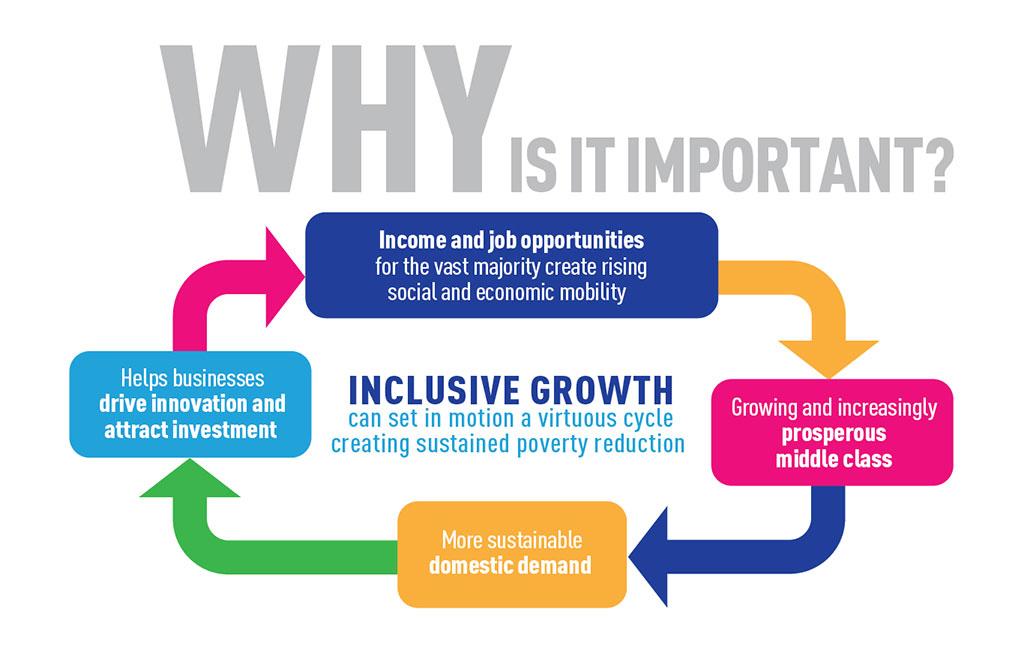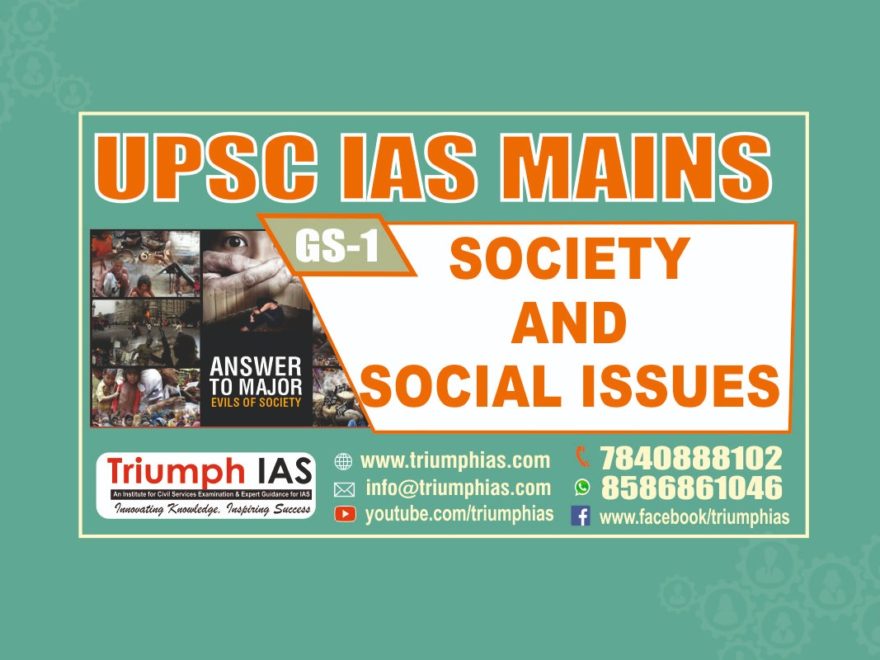ROLE OF RURAL WOMEN IN INCLUSIVE DEVELOPMENT
Relevance:
G.S paper I:
- Society and social issues: Role of women and women’s organization.
- Social empowerment
Sociology:
- Rural and Agrarian transformation in India:
- Programmes of rural development, Community Development Programme, cooperatives, poverty alleviation schemes.
Inclusive development:

- Inclusive development can be achieved through growth with equity– social, economic and political.
- Inclusive growth is not automatic and it can only be attained through suitable policy formulation, proactive intervention, effective policy implementation and people’s participation in the governance process.
Status of rural women:
- Rural women are key agents for achieving the transformational economic, environmental and social changes required for sustainable development. But limited access to credit, health care and education are among the many challenges they face, which are further aggravated by the global food and economic crises and climate change.
- Empowering them is crucial not only for the well being of individual families and rural communities but also for overall economic productivity given women’s large presence in the agricultural workforce worldwide. Handling multiple roles every single day, women are undoubtedly the backbone of any society.
Women empowerment:
- Empowerment of women involves economic opportunity, social equality and personal rights.
- Women’s empowerment is a process in which women gain greater share of control over resources – material, human and intellectual such as knowledge, information, ideas and financial resources like money as well as control over decision making in the home, community, society and nation so as to gain “power”.
Government Empowerment Programmes for Rural Women:
- The government has initiated the following empowerment programmes for inclusive development for rural women.
- Beti Bachao Beti Padhao (BBBP): This flagship scheme was launched initially to address the declining Child Sex Ratio but has since broadened its outlook to take under its ambit provisions to motivate higher education for girls and related issues of disempowerment of women on a life- cycle continuum.
- Pradhan Mantri Matru Vandana Yojana (PMMVY): PMMVY beneficiaries would receive a cash incentive of Rs. 6000 during pregnancy and after institutional delivery.
- The Pradhan Mantri Ujjwala Yojana aims to make cooking gas (LPG) available to women from families that are financially backward.
- Deen Dayal Upadhyaya Antyodaya Yojana (DAY-NRLM): It focuses on rural women and aims to achieve universal social mobilization by involving rural women. At least one woman member from each identified poor rural household is to be brought under the Self Help Group (SHG) network in a time-bound manner. NRLM would help them graduate out of poverty.
- Deen Dayal Upadhyaya Grameen Kaushalya Yojana (DDU-GKY) aims to skill rural youth who are poor and provide them with jobs having regular monthly wages or above the minimum wages. It ensures social inclusion of the candidates by mandatory coverage of socially disadvantaged groups, where one-third of the persons covered should be women.
- Mahila Kisan Sashaktikaran Pariyojana (MKSP) aims to improve the present status of women in agriculture and enhance the opportunities for empowerment.
- Rashtriya Mahila Kosh (RMK): Rashtriya Mahila Kosh (RMK), of the Ministry of Women and Child Development, extends micro-credit to women in the informal sector through a client-friendly, collateral-free and hassle-free manner for income generation activities.
- Mahila Shakti Kendra (MSK): It is as a sub-scheme under the Umbrella Scheme ‘Mission for Protection and Empowerment for Women’ to empower rural women through community participation. MSK Scheme is envisaged to provide an interface for rural women to approach the government for availing their entitled benefits and for empowering them through training and capacity building. Community engagement through College Students Volunteers is envisioned in 115 most backward districts as part of the MSK Block level initiatives.
- National Repository of Information for Women (NARI): Ministry of Women and Child Development has prepared a portal namely National Repository of Information for Women (NARI) that will provide citizens easy access to information on government schemes and initiatives for women. The portal summarises over 350 government schemes and other important information for the benefit of women.
- National Nutrition Mission (NNM): To deal with the problem of malnutrition, the government has set-up the National Nutrition Mission (NNM). The aim is to achieve an improvement in the nutritional status of children of 0–6 years and pregnant and lactating women in a time-bound manner, during the three years beginning from 2017–18, with defined targets
- Mahila Police Volunteers (MPVs) will prove to be an effective alternative against the local police for women. MPVs were launched in all States and UTs to serve as a public-policy interface and facilitate women in distress. The MPVs report incidences of domestic violence, child marriage, dowry harassment, and violence faced by women in public spaces.
- Mahila e-Haat is an initiative to economically empower women through financial inclusion. It is a direct online digital marketing platform for women entrepreneurs/SHGs/NGOs.
- Empowering Elected Women Representative (EWRs): Ministry of Women and Child Development has launched an extensive training programme with an objective of empowering Elected Women Representatives (EWRs) and help them assume the leadership roles expected of them and guide their villages for a more prosperous future.
Conclusion:
- The goal of inclusive development must involve the health, education and empowerment of women who form almost 50 per cent of the Indian population.
- Government should empower rural women to claim their rights to land, leadership, opportunities and choices, and to participate in shaping laws, policies and programmes. The initiatives should promote equal rights, opportunities and participation so that rural women can make a strong contribution to inclusive sustainable rural development.
- The government programmes promoting women education and skill development should be pursued more vigorously.

